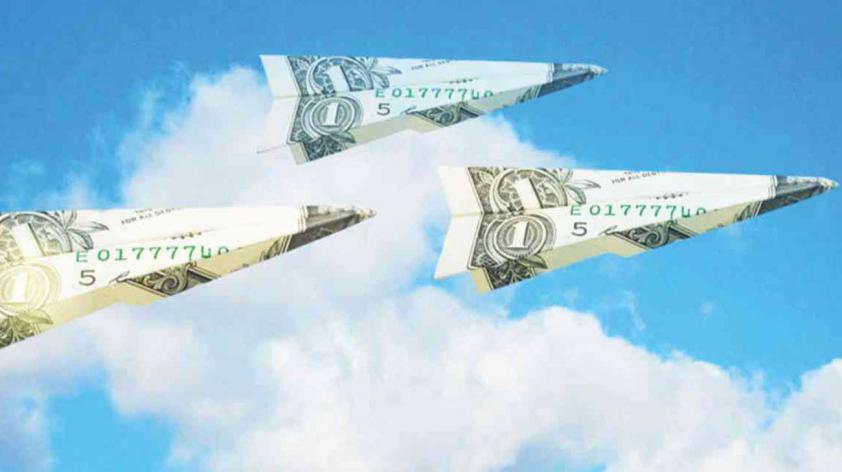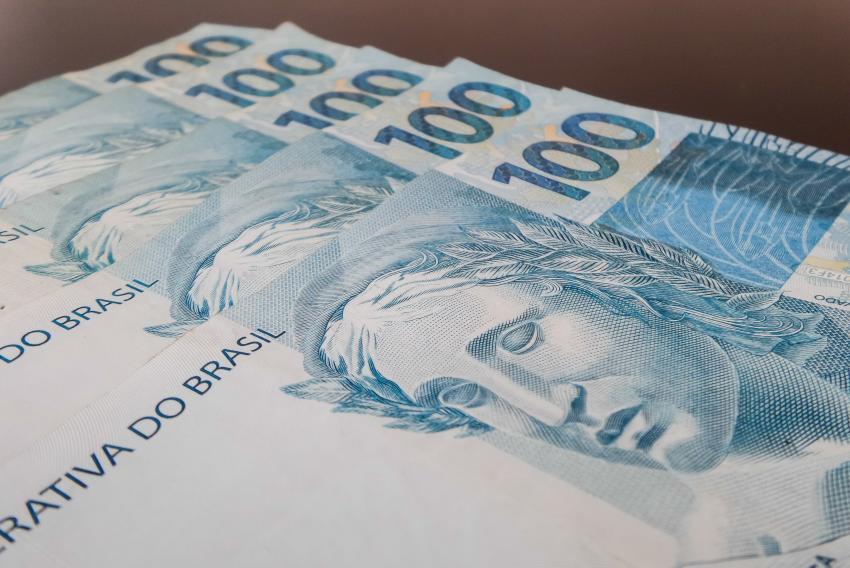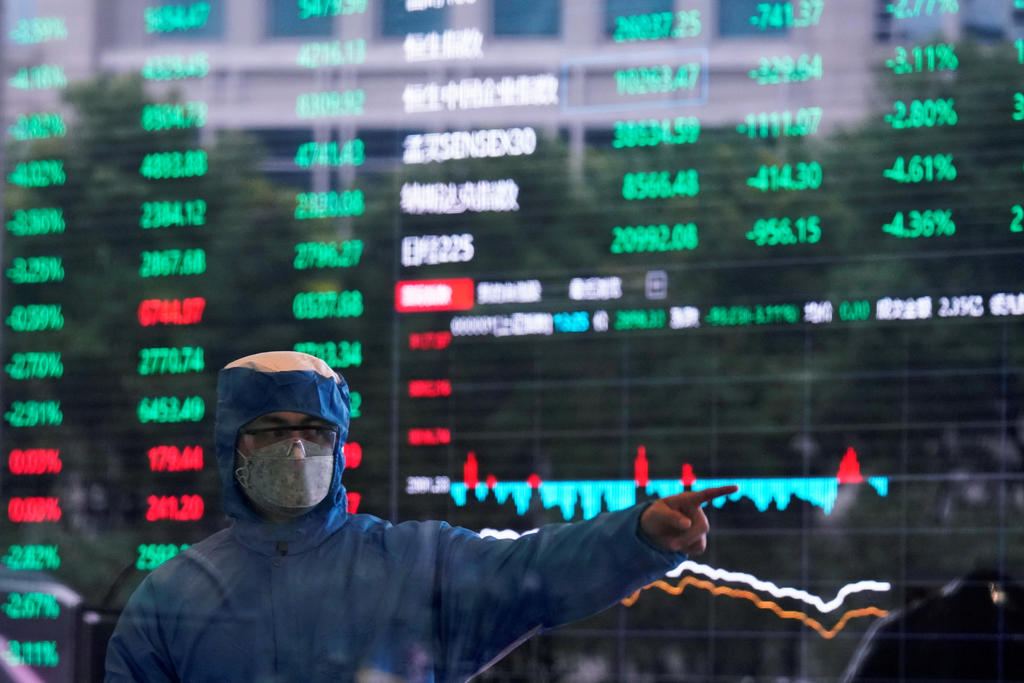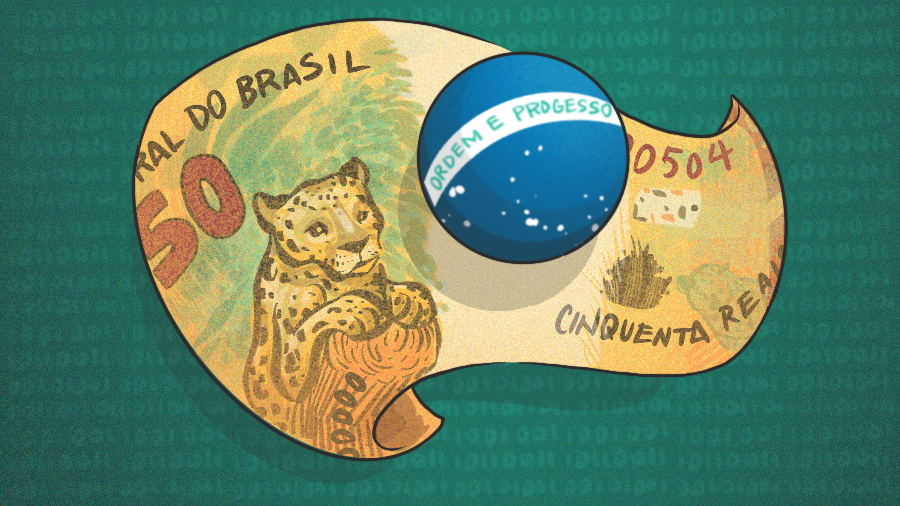RIO DE JANEIRO, BRAZIL – By March 4th, foreigners had withdrawn R$44.8 (US$11.2) billion from the Brazilian Stock Exchange. The figure exceeds the amount withdrawn in the whole of 2019, of R$44.5 billion, excluding public offerings (IPOs and follow-ons).
The withdrawal also exceeds the 2008 figure, the highest in the B3 historical series. In figures corrected for inflation, R$44.6 billion were withdrawn during the crisis year. The speed of withdrawal is also a record, around R$1.05 billion per trading session, and exceeds the 2008 daily average.
Considering IPOs (initial public offering) and follow-ons (subsequent public offering), the foreigners’ balance is negative at R$33.4 billion this year. In 2019, considering these operations, the outflow was R$4.7 billion.

Analysts point out that the outflow of foreigners is not exclusive to Brazil, but occurs more intensely and quickly here due to the significant presence of such investors in the country and the broad liquidity of the Brazilian market.
Considering the volume of purchase and sale of shares on the Stock Exchange, foreigners account for 45 percent of the total in 2020. Institutional investors (banks and funds) represent 33 percent and individuals 17.6 percent.
“The fact that the Brazilian economy is slipping reduces its attractiveness to foreigners. The outflow is linked to the lack of growth prospects for Brazil, something that was intensified by the coronavirus because, in times of panic, investors manage to get rid of their positions here,” says Paulo Gala, director-general of Fator Funds Management.
This year, as investors fear the economic impact of the coronavirus and a slowdown in the global economy, foreigners are selling assets faster in emerging countries in search of safer investments, such as gold and US Treasury bonds, which is reflected in the devaluation of virtually all emerging currencies except the Chinese renminbi and the Taiwan dollar.
Of all the global currencies, the Brazilian real is the one that has depreciated the most in the year, losing 15.5 percent against the dollar.
On Friday, after new Central Bank auctions of foreign exchange swap in the amount of US$2 billion, the US currency dropped 0.4 percent to R$4.634. The tourism dollar stands at R$4.81 for sales.
The Central Bank announced a further US$1 billion in foreign exchange swap auctions for Monday, March 9th. The measure increases the money supply in the market, as the Central Bank offers contracts that compensate investors for the exchange rate variation, contributing to reduce the price of the dollar.

The Brazilian stock market had its second trading session followed by a sharp drop on Friday and closed below the symbolic 100,000 point mark for the first time since October. The IBOVESPA dropped four percent to 97,996 points, the lowest level since August 27th, 2019. It dropped six percent in the week and 15 percent in the year.
The drop in this session was pressured by Petrobras, whose shares plummeted with the international slump in oil prices. Common shares (with voting rights) fell 10.25 percent to R$24, while preferred shares (without voting rights) fell 9.7 percent to R$22.83.
The Brent future contract for crude oil fell nine percent to US$45.46, the lowest since 2016, after the OPEC (Organization of Petroleum Exporting Countries) and Russia failed to agree on deeper cuts in oil production to maintain the price level with the drop in demand amid the coronavirus epidemic.
Brazil’s country risk measured by the five-year CDS (Credit Default Swap), a type of contract that serves as a gauge for investor confidence in economies, rose 10.7 percent to 142.9 points, the highest level since October 2019, before the welfare reform was passed in the Senate.
On Thursday, March 5th, the Brazilian CDS climbed 14.4 percent, the highest daily percentage since the so-called Joesley Day, on May 18th, 2017, when information came to light that Joesley Batista had recorded a conversation with then-President Michel Temer. At the time, the country risk increased by 29 percent to 265 points.
If the CDS increases, it means that investors fear Brazil’s financial future; if it drops, the message is reversed: it signals increased confidence in the country’s ability to pay off its debts.

On Friday, the VIX volatility index, based on operations in the US financial market, was at its highest level in history during the day, above the previous record high in 2008. At the end of the trading session, the index reduced its high, the highest value since 2011, when the S&P lowered the US credit rating.
In the United States, the Dow Jones fell by one percent, the S&P 500 by 1.7 percent and the Nasdaq by 1.8 percent. As US investors pull out from risky assets such as equities, they are looking for Treasury bonds, which are safer. The trend causes the yield of these securities to drop. In this session, the yield on the US Treasury bond plummeted 16.4 percent to 0.7623 percent a year, its lowest level in history.
“We are experiencing a moment of very great risk aversion. With the coronavirus reaching Italy, the United States and South America, things become difficult and foreigners are withdrawing resources from emerging economies,” said Étore Sanchez, chief economist of Ativa Investments.
“The outbreak has been spreading and here we are monitoring the global risk aversion. We are an emerging economy and, therefore, if it is poor in the world’s major stock exchanges, we will suffer more severely,” says Victor Lima, an analyst at Toro Investments.
He points out that since Brazil’s two main trading partners are China and the United States, economies affected by the disease, the impact may be greater than emerging peers. In addition, the poor performance of the local economy fails to reassure foreigners.
“If the 2019 GDP (Gross Domestic Product) hadn’t been so bad, the outflow wouldn’t have been as strong,” Lima says. On Wednesday, March 4th, the 2019 GDP was released, showing a 1.1 percent growth, below the initial projection of Paulo Guedes’ economic team.

The outflow of foreigners is not limited to the stock exchange. According to data from the Central Bank, the balance of financial transactions in the country is negative at US$10.8 billion in 2020, worse than the first five months in 2019.
The SELIC at its historical low is also contributing to the country’s dollar flight. This is because foreigners came to the country due to the carry trade advantage, an investment practice in which the profit lies in the difference between the exchange and the interest rates.
In this practice, investors take money at a lower interest rate in a given country, in this case, the USA, to invest it in another, with another currency, where the interest rate is higher, namely Brazil. With the SELIC at 4.25 percent, this operation is no longer profitable and foreigners withdraw their funds, in dollars, from the country.
“The outflow of foreigners from the country has been happening since 2019, the SELIC drop drove out those who were interested in the short term and the expected cut in interest rates by the Central Bank on the 18th quickened the outflow of capital,” says Paulo Gala.
The dollar flight from the stock exchange and other investments contributes to a higher dollar exchange rate. On Thursday, March 5th, the US currency set a new nominal record at R$4.653.
“The Social Welfare reform’s approval hasn’t stirred investors much and now Congress is stopping. In addition, the labor market is slowly improving with the creation of few job openings and there is great idleness in trade and industry,” Gala says.

Congress and Jair Bolsonaro’s administration have experienced a new crisis surrounding the tax budget, which could affect the progress of administrative and tax reforms. Despite agreement on the issue, the President called for a demonstration on March 15th, which will raise flags against Congress and in favor of the military and the current government. In addition, municipal elections should reduce the strength of the legislature.
Source: UOL

